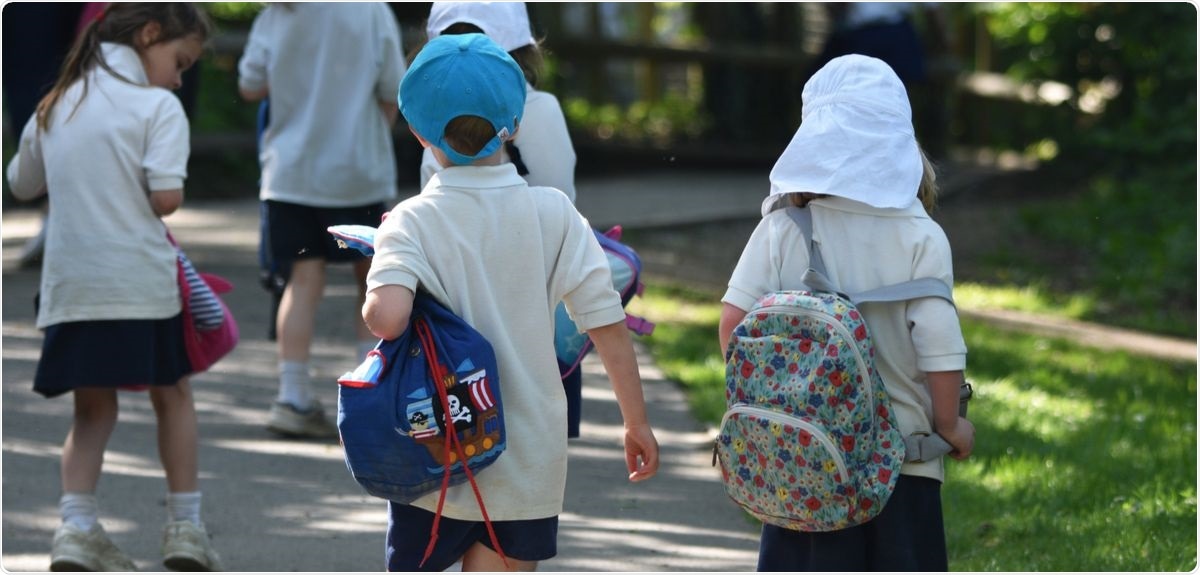The latest report from the Co-SPACE study highlights that for participating primary school aged children:

Mental health difficulties in children increased during the first national lockdown (between March and June 2020), but have decreased since. Image Credit: Shutterstock
- Mental health difficulties in children increased during the first national lockdown (between March and June 2020), but have decreased since
- Over the course of the first national lockdown, behavioral and restless/attentional difficulties increased, while most children were not attending school.
- Behavioral, emotional, and restless/ attentional difficulties have generally decreased from July (i.e. when home schooling demands typically reduce), throughout the summer holidays, and as children returned to school in September.
Participating parents and carers reported that their children displayed increasing behavior difficulties from March to June 2020, including temper tantrums, arguments and not doing what they were being asked to do by adults. They also became more fidgety and restless and had greater difficulty paying attention. However, parents and carers reported a decrease in these difficulties from July to October. Since then, children have also been reported to display fewer emotional difficulties, such as feeling unhappy, worried, being clingy and experiencing physical symptoms associated with worry.
Professor Cathy Creswell, Professor of Developmental Clinical Psychology, University of Oxford, and co-lead of the study, said: “Our findings highlight the challenges that children and families faced during the first lockdown when most children were not able to attend school. We are pleased to see that things have generally improved for study families since the pressures of home learning have reduced, but our findings raise concerns about the impact of the ongoing disruption to schooling that many children are dealing with. We don’t yet know the impact of this second lockdown, although children being able to attend school could make all the difference. High rates of mental health difficulties among children in low income families also highlight the huge challenge faced as more and more families tackle the economic impacts of the pandemic.”
Among participating young people of secondary school age, parent/carer-reported mental health symptoms have been more stable throughout the pandemic.
The study also highlighted that children with special education needs and/or neurodevelopmental differences and those from lower income household (< £16,000 p.a.) displayed consistently elevated behavioral, emotional and restlessness/ attentional difficulties over the course of the pandemic.
Professor Gordon Harold, Professor of the Psychology of Education and Mental Health, University of Cambridge, said: “One of the most significant and under-reported impacts on children, adolescents families and society is the adverse effects that school closures have had on young people directly, and society generally. Schools provide an immensely important forum for children and young people and are an essential component of society’s infrastructure in promoting positive mental health, providing support and resources for those with additional educational needs and protecting young people and society from poor mental health outcomes and adverse impacts on long-term life chances. This report is a timely reminder of the importance of schools and education and associations with young people’s mental health.”
More than 12,300 parents have now taken part in the Co-SPACE (COVID-19 Supporting Parents, Adolescents, and Children in Epidemics) survey led by experts at the University of Oxford. This research is tracking children and young people’s mental health throughout the COVID-19 crisis. Survey results are helping researchers identify what protects children and young people from deteriorating mental health, over time, and at particular stress points, and how this may vary according to child and family characteristics. This will help to identify what advice, support and help parents would find most useful. Crucially, the study is continuing to collect data in order to determine whether this has changed as schools have re-opened and many children returned to the classroom, as well as any impacts from subsequent lockdowns.
This research is funded by the Economic and Social Research Council (ESRC) as part of the UK Research and Innovation’s rapid response to COVID-19 and the Westminster Foundation, and supported by the NIHR Oxford Health Biomedical Research Centre, the Oxford and Thames Valley NIHR Applied Research Consortium and the UKRI Emerging Minds Network Plus.